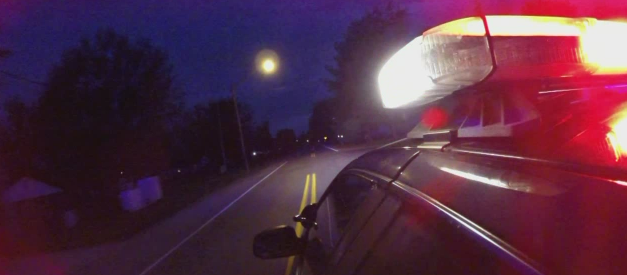Trauma surgeon, paramedic discuss deadliest year in Indianapolis history
INDIANAPOLIS (WISH) — More people have been killed in Indianapolis this year than ever before, according to police.
Police officers, paramedics and doctors witness those crimes every day. Many of the shooting victims are taken to a trauma center like IU Health Methodist Hospital, where Dr. Jamie Coleman works as a trauma surgeon.
“As a trauma surgeon, really my job is to cheat death,” said Coleman.
Coleman said she worked in Atlanta, Chicago and Memphis before moving to Indianapolis.
“I’ve absolutely been shocked by the level of violence here,” said Coleman. “I really didn’t expect the level of violence that I’ve seen here in Indianapolis. Not just with even ‘regular’ gunshot wounds, but with high-velocity weapons. I’m seeing AK-47s and high-powered rifles in a way that I really never expected.”
Before patients reach trauma surgeons, their lives are in the hands of paramedics like Nicole Hall.
“The surgery is what’s going to save them. We’re first hand to make sure we get them there,” said Hall.
Many of Hall’s runs are homicides. She’s worked as a paramedic in Indianapolis for two months. Already, she estimates she’s responded to 20-30 shootings in the area she covers.
“It is scary…who’s around me? Are they still here? Could this be me?” said Hall.
Hall and Coleman said losing a patient is something they never forget. Telling family members their loved one has died is the worst part of the job.
“There are families and reactions that have been etched in my brain. But it’s a matter of processing it and compartmentalizing and letting it affect you but not let it paralyze you,” said Coleman.
“There’s nothing you can do and it’s defeating. It’s hard. … We all have that run, the run that sticks with you. The one you’ll never forget. The one where their face never leaves your mind, or their cries of ‘please save me,’ or ‘please help me’ or their family member’s cries. You’ll never forget them,” said Hall.
Coleman and Hall witness tragedy up close in a way not everyone has.
“I think people have become desensitized, even on the news. It’s numbers. It’s facts. It’s statistics,” said Coleman.
When Coleman is operating, she doesn’t see a number.
“It’s not a number. It’s a person who put on their clothes that morning, who got in their car, who made phone calls, who paid bills, who did things we all do. But their life ended in a dramatic way. That’s not a number,” said Coleman.
Coleman believes the vast majority of her job is preventable.
“This is not cancer. This is not a virus. This is people acting against other people,” said Coleman.
As we enter a new year, first responders and trauma teams hope Indianapolis does not break the horrific record for a third year in a row.
“We need to start actually caring about each other,” said Coleman.
Coleman and Hall want 2017 to be different.
“Not having to have this memory. Not having to tell the loved ones that their family members are gone,” Hall said.
“I’m hoping that we can stop the trauma before they get to the hospital,” said Coleman. “We can prevent this … regardless of race, of age, regardless of how much money you make, when we start caring about each other within the community and realize that a little bit of time may save someone’s life. It’s not just me that can save someone’s life. It’s anybody in this community. Until we realize that, I’m going to be here,” said Coleman.
Though witnessing tragedy can be heartbreaking and emotionally exhausting, Coleman said she is grateful for her position.
“When you spend your day talking to people and potentially telling them that their loved one is gone, it puts a different perspective on your life. In a way, I’m thankful for that. Although there are patients I will never forget, there are situations that will never leave my memory, will never leave my mind — I’m so thankful for this unique perspective. The little things don’t seem to bother me,” said Coleman.
